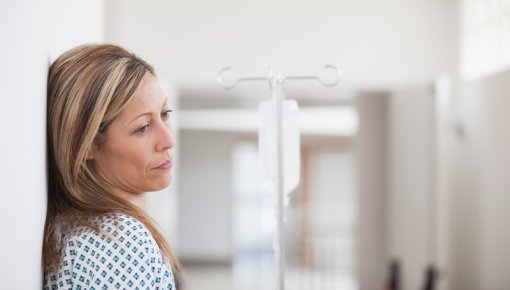Bradt J, Dileo C, Shim M. Music interventions for preoperative anxiety. Cochrane Database Syst Rev 2013; (6): CD006908.
Gray RE, Fitch MI, Phillips C et al. Presurgery experiences of prostate cancer patients and their spouses. Cancer Pract 1999; 7(3): 130-135.
Hale AS. ABC of mental health. Anxiety. BMJ 1997; 314(7098): 1886-1889.
Hansen MV, Halladin NL, Rosenberg J et al. Melatonin for pre- and postoperative anxiety in adults. Cochrane Database Syst Rev 2015; (4): CD009861.
Kakar E, Billar RJ, van Rosmalen J et al. Music intervention to relieve anxiety and pain in adults undergoing cardiac surgery: a systematic review and meta-analysis. Open Heart 2021; 8(1): e001474.
Madsen BK, Zetner D, Møller AM et al. Melatonin for preoperative and postoperative anxiety in adults. Cochrane Database Syst Rev 2020; (12): CD009861.
Pilkington K, Kirkwood G, Rampes H et al. Acupuncture for anxiety and anxiety disorders - a systematic literature review. Acupunct Med 2007; 25(1-2): 1-10.
Thomsen T, Villebro N, Møller AM. Interventions for preoperative smoking cessation. Cochrane Database Syst Rev 2014; (3): CD002294.
Tong QY, Liu R, Zhang K et al. Can acupuncture therapy reduce preoperative anxiety? A systematic review and meta-analysis. J Integr Med 2021; 19(1): 20-28.
Vaughn F, Wichowski H, Bosworth G. Does preoperative anxiety level predict postoperative pain? AORN J 2007; 85(3): 589-604.
IQWiG health information is written with the aim of helping people understand the advantages and disadvantages of the main treatment options and health care services.
Because IQWiG is a German institute, some of the information provided here is specific to the German health care system. The suitability of any of the described options in an individual case can be determined by talking to a doctor. informedhealth.org can provide support for talks with doctors and other medical professionals, but cannot replace them. We do not offer individual consultations.
Our information is based on the results of good-quality studies. It is written by a team of health care professionals, scientists and editors, and reviewed by external experts. You can find a detailed description of how our health information is produced and updated in our methods.

